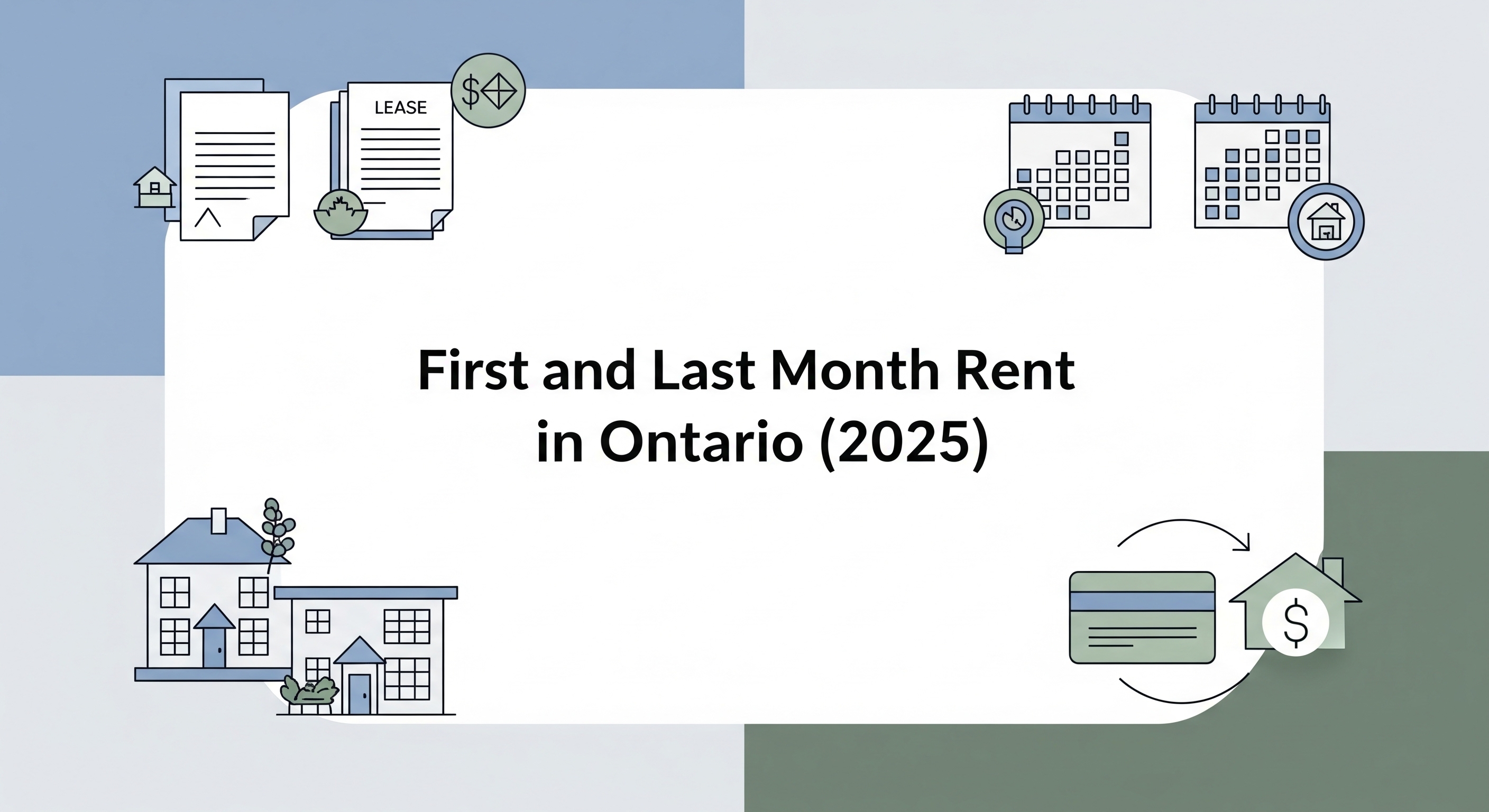


In Ontario’s 2025 rental market, navigating lease agreements and payment schedules is more important than ever. One of the most common areas of confusion for renters is around first and last month rent Ontario requirements. According to the Canada Mortgage and Housing Corporation (CMHC), over 48% of Ontario tenants reported unclear lease terms in 2024, especially concerning deposits, payment timing, and rent increases.
With Ontario rent rules 2025 tightening and vacancy rates dropping across cities like Toronto, Ottawa, and Hamilton, it’s vital that tenants understand their rights and obligations before signing the lease. This blog covers everything from deposit norms to dispute processes — with tips on how platforms like TenantPay help renters stay organized, avoid late payments, and even build credit through rent reporting.
In Ontario, landlords are legally allowed to ask for both first and last month’s rent at the start of a tenancy. Here’s what that means:
Unlike provinces that allow security or damage deposits, damage deposit Ontario law prohibits landlords from requesting additional funds outside rent-related payments. The first and last month rent Ontario model is designed to simplify the process — but confusion still arises.
Quick Fact: The last month’s rent deposit is not a “security” deposit. It cannot be used for unpaid utilities or repairs unless the tenant agrees.
In a rising number of cases, especially post-pandemic, tenant not paying rent Ontario situations have become more common. If rent is not paid by the due date:
Platforms like TenantPay reduce this risk. Tenants can enable autopay, receive reminders, and even earn TenantPay Points for paying rent in advance, on-time payments, or setting up recurring payments. These points are redeemable via Giftbit Canada, offering over 109+ vendors like Amazon, Walmart, and Starbucks.
Rent due date rules Ontario are outlined in your lease, but typically fall on the 1st of the month unless agreed otherwise. Other important rules include:
Tip: Platforms like TenantPay support multiple payment methods — Visa, Mastercard, Interac, AMEX, and even over 20 crypto options — letting you pay your way.
Ontario is clear about what can be charged and what can’t. Here's a breakdown:
For renters unsure about what they’re being charged, Tenant Income Certification tools (often requested by landlords) are used to verify income without overstepping privacy rights.
TenantPay is more than a payment processor. It’s a credit builder and reward system rolled into one:
These points are different from credit card rewards. In fact, you can earn both simultaneously by paying rent with your card through TenantPay.
Game the system, transparently. You know how many points you earn per action — no vague terms or hidden catches.
For example, the allowable increase in 2025 is 2.5%, per Ontario.ca.
Understanding first and last month rent Ontario rules isn’t just about avoiding conflict — it’s about protecting your rights as a tenant and planning smarter financially. Whether you’re renting in Toronto or Thunder Bay, tools like TenantPay are designed to make your journey easier:
Stay ahead of Ontario’s evolving rental laws, and don’t let confusion over deposits or due dates cost you your peace of mind.
Want to build credit while paying rent?
👉 Book a Demo with TenantPay today and turn your rent into rewards and credit strength.
.png)
The landlord can legally ask for the first and last month’s rent at lease signing. The last month is held as a deposit and applied to your final month — it’s not a security deposit.
No. Ontario does not permit damage or pet deposits. Only key deposits and rent-related deposits are allowed under current law.
The landlord can issue a Notice to End Tenancy (N4). If payment isn’t received in 14 days, they can apply to the LTB for eviction.
Typically on the 1st of each month, unless agreed otherwise. Landlords can’t change due dates without consent.
Only if agreed upon by both landlord and tenant. If no date is set, it defaults to the first day of each month.
Common documents include recent pay stubs, job offer letters, bank statements, and tax returns.
Use platforms like TenantPay that report to Equifax and Rent Check. Regular rent payments improve your credit profile over time.
No, they are separate. You earn points through rent-related actions and can redeem them for gift cards via Giftbit (Canada vendors included).
TenantPay supports Visa, Mastercard, AMEX, Interac, and 20+ cryptocurrencies — giving renters full flexibility.
Yes, but only after proper notice and process through the LTB. One late payment typically doesn’t result in eviction — repeated or unpaid balances might.